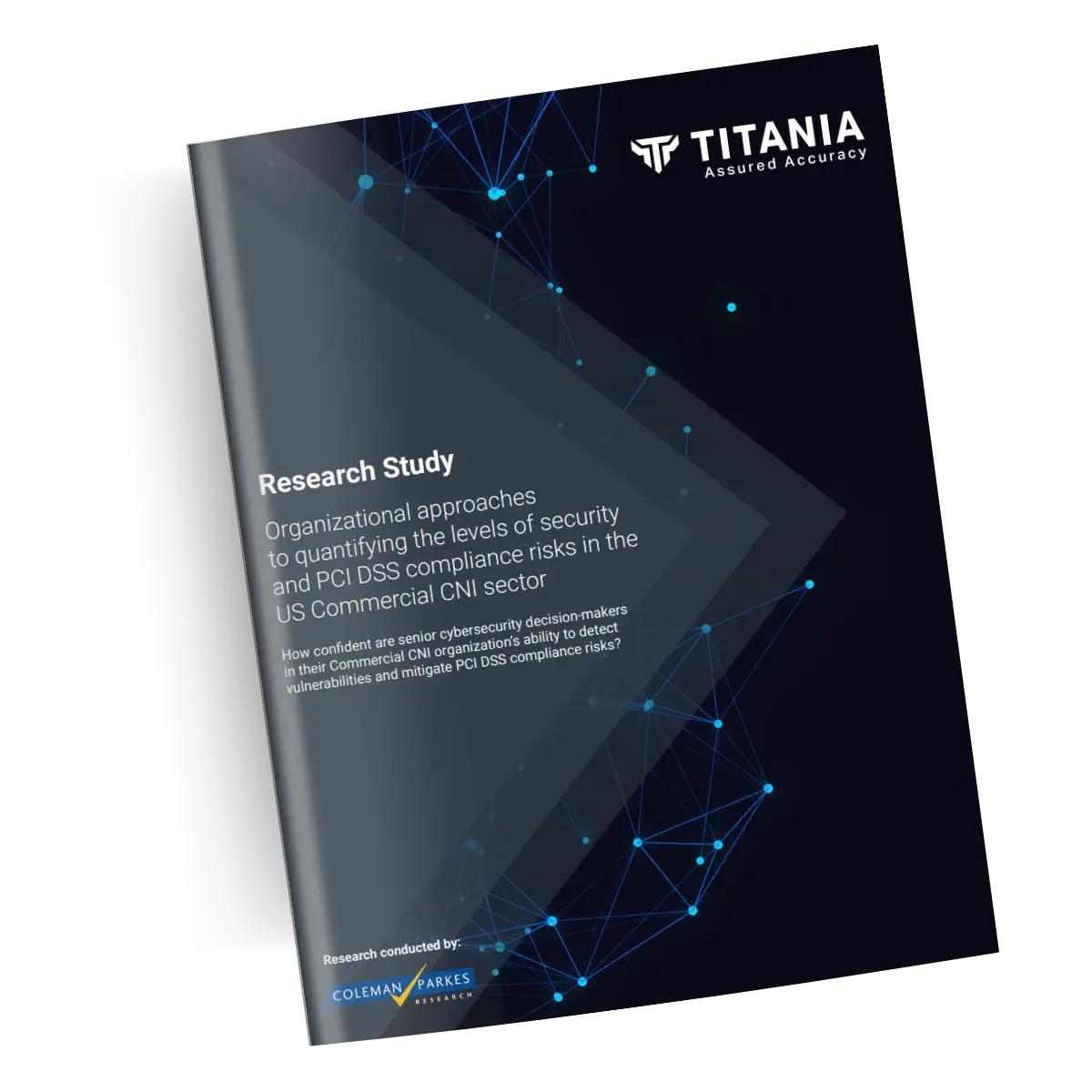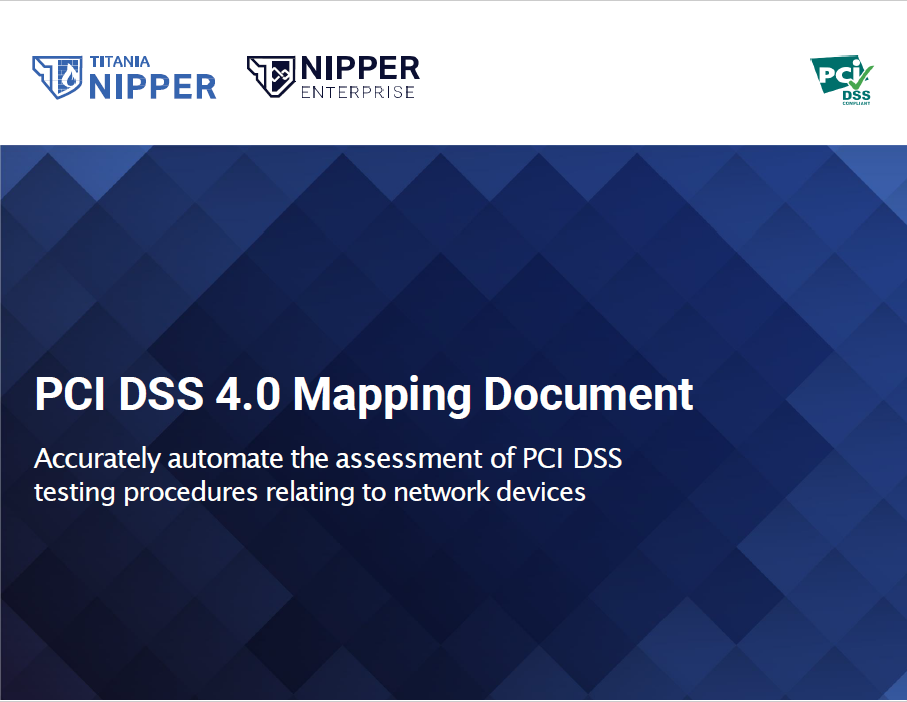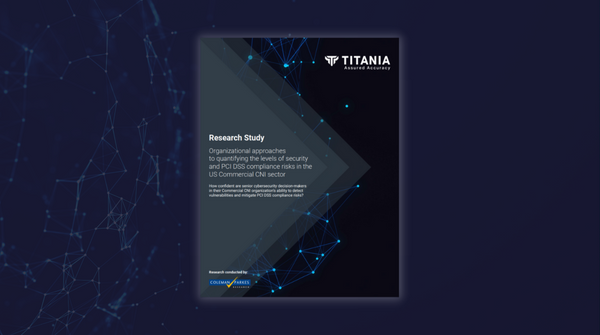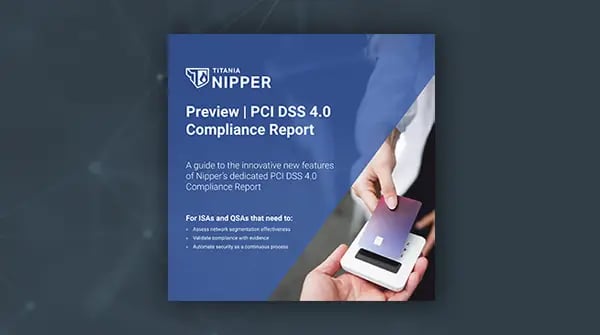Continuous compliance at scale
PCI DSS Compliance
Assure CDEs are effectively segmented with automated pass/fail reporting of PCI DSS compliance
Configuration Security: Evidence-based PCI DSS Compliance
Complex networks, large customer bases, and long supply chains have made commercial CNI organizations – and particularly their cardholder data environments - highly susceptible to attacks in recent years.
To reflect the increase in risk, the Payment Card Industry Data Security Standard (PCI DSS) 4.0 now recommends continuous monitoring of all network devices to ensure a regular cadence of assessment to detect and mitigate vulnerabilities (both software and misconfigurations), before they can be exploited.
The ability to accurately prioritize the remediation of non-compliances based on risk is fundamental to improving PCI DSS compliance posture – and why Qualified Security Assessors (QSAs) and Internal Security Assessors (ISAs) globally champion Nipper solutions.
Assure effective network segmentation
Prevent unauthorized access to the CDE and other critical network segments by hardening from the inside-out, inhibiting lateral movement and making it as difficult as possible for intruders to gain entry and progress towards their goal.
Automate security as a continuous process
Abandon sampling by automating the process of regularly assessing network infrastructure and prioritizing remediation based on PCI DSS risk.
Analyze exposure due to misconfiguration risks
Automate audits against STIGs, CCI, NIST 800-53 and/or the MITRE ATT&CK framework to understand the extent to which the network is exposed due to misconfigurations.
Research Report
Report reveals less than 40% of senior cybersecurity decision makers can effectively prioritize risks to PCI DSS 4.0 compliance.

Prevent Unauthorized Access to CDE
Validate ‘deny all’/’permit by exception’ access to the CDE and mitigate the risk of lateral movement from advanced persistent threat, by continuously verifying networks remain adequately segmented.
Assure Continuous PCI DSS Compliance
Effectively manage configuration drift by increasing the cadence of PCI DSS assessments of every router, switch and firewall in the CDE, using Nipper Enterprise to scale.


Automate Evidence-based CDE Checks
Accurately assess device configurations with drill down detail of the checks performed to evidence how it complies with PCI DSS requirements – or describes how it fails to comply and how to fix it.
Automate Assessor-ready Reporting
Simplify compliance reporting processes for PCI DSS 4.0 network infrastructure requirements with Pass / Fail / Not Applicable results for each device, provided in an assessor-ready report format.


Risk-prioritize Remediation Workflows
Automate prioritization of misconfiguration findings with mitigating advice to inform remediation workflows, allowing you to fix PCI DSS non-compliances, in a risk-prioritized order.
Deliver Security from PCI DSS Compliance
Automate an accurate, timely, and scalable approach to PCI DSS compliance, ensuring proactive security as key to protecting CDEs and networks from preventable attacks.

Continuous Network Security &
Compliance, at Scale
Nipper Enterprise provides continuous compliance assurance that is fundamental to PCI DSS 4.0.
Explore Related Resources
Looking for continuous configuration assessment to:
- Assure your CDE is adequately segmented?
- Evidence compliance with PCI DSS 4.0
- Validate the security of every router, switch and firewall on your network?



